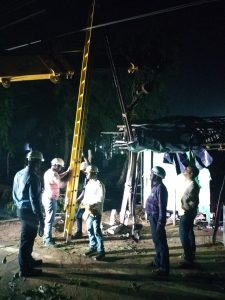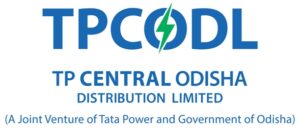Navigating the complexities of infrastructure amidst Odisha’s Nor’wester fury
PRIYABRAT BISWAL
The tempestuous fury of a Nor’wester descended upon the capital city of Odisha on a fateful Monday (May 6, 2024) afternoon, leaving in its wake a trail of devastation, particularly within the delicate web of the power supply infrastructure. As the tempest raged, swathes of the city were shrouded in impenetrable darkness, defying the valiant efforts of the tireless linemen of TPCODL to reinstate the flickering lifeline of electricity. Despite their Herculean endeavours, the cloak of night persisted in its grip over many neighbourhoods until the late hours, eliciting a deluge of grievances from the beleaguered denizens on social media.
As complaints flooded social media, an odd silence lingered where gratitude should have been, highlighting a stark irony: while failures were swiftly condemned, triumphs went unnoticed. It was a paradoxical spectacle – a chorus of complaints in the absence of commendation. Why, in moments of triumph, do we withhold the applause that is so readily given in times of failure?
 But let us pause, amidst the cacophony of grievances, to ponder the root of the issue. Is the distribution company solely accountable for such lapses, or does the burden of responsibility extend to the guardians of infrastructure, the State Government itself? Cast your mind back to the cataclysmic events of 1999, when the relentless fury of a Super Cyclone laid waste to the very foundations of the power grid. In response, promises were made – promises of underground cables to shield vulnerable areas from the ravages of future storms. Yet, here we stand, nearly a quarter-century later, bearing witness to the bitter truth that these safeguards remain but a distant dream, even within the heart of the capital. Has the passage of time not served as a stern tutor, imparting lessons unlearned? Must we endure history’s bitter lessons anew, as evidenced by the harrowing ordeal of Cyclone Fani in 2019, which once again plunged the city into darkness?
But let us pause, amidst the cacophony of grievances, to ponder the root of the issue. Is the distribution company solely accountable for such lapses, or does the burden of responsibility extend to the guardians of infrastructure, the State Government itself? Cast your mind back to the cataclysmic events of 1999, when the relentless fury of a Super Cyclone laid waste to the very foundations of the power grid. In response, promises were made – promises of underground cables to shield vulnerable areas from the ravages of future storms. Yet, here we stand, nearly a quarter-century later, bearing witness to the bitter truth that these safeguards remain but a distant dream, even within the heart of the capital. Has the passage of time not served as a stern tutor, imparting lessons unlearned? Must we endure history’s bitter lessons anew, as evidenced by the harrowing ordeal of Cyclone Fani in 2019, which once again plunged the city into darkness?
And what of Tata Power, entrusted with the mantle of distribution in Odisha since April 2021? Let us not overlook their steadfast commitment to revitalizing the dilapidated infrastructure inherited in their charge. Despite facing a daunting task, they have remained undeterred in their mission to bestow upon consumers a steady stream of uninterrupted power, tirelessly labouring to breathe new life into a system on the brink of collapse.

TPCODL Logo Eng
Turning our gaze to the realm of consumer grievances, it would be remiss to deny the strides made in recent years. Indeed, the quality of power has seen significant improvement, and the duration of outages has been substantially reduced. Yet, amidst these triumphs, challenges persist – challenges that demand our patience and understanding.
Consider, for instance, the recurring spectre of transformer breakdowns, particularly exacerbated during the sweltering embrace of summer. Here, the finger of blame cannot be pointed solely at the distribution company; rather, it finds purchase in the actions of consumers who exceed their allotted energy thresholds. Transformers, meticulously calibrated to accommodate declared loads, strain under the weight of excess demand, precipitating inevitable failure. In such moments of crisis, to heap censure upon the distribution company is both misguided and unjust.
Instead, let’s acknowledge the unsung heroes – the linemen – who labour tirelessly in the crucible of adversity, forsaking comfort and repose to ensure our uninterrupted access to the lifeblood of power. Remember, they too are human, with families and aspirations, sacrificing their peace for our convenience. Their dedication merits our appreciation, not criticism. For in acknowledging the efforts of those who toil behind the scenes, we honour not only their labour but the very essence of our collective resilience in the face of adversity.
 The Business Bytes
The Business Bytes